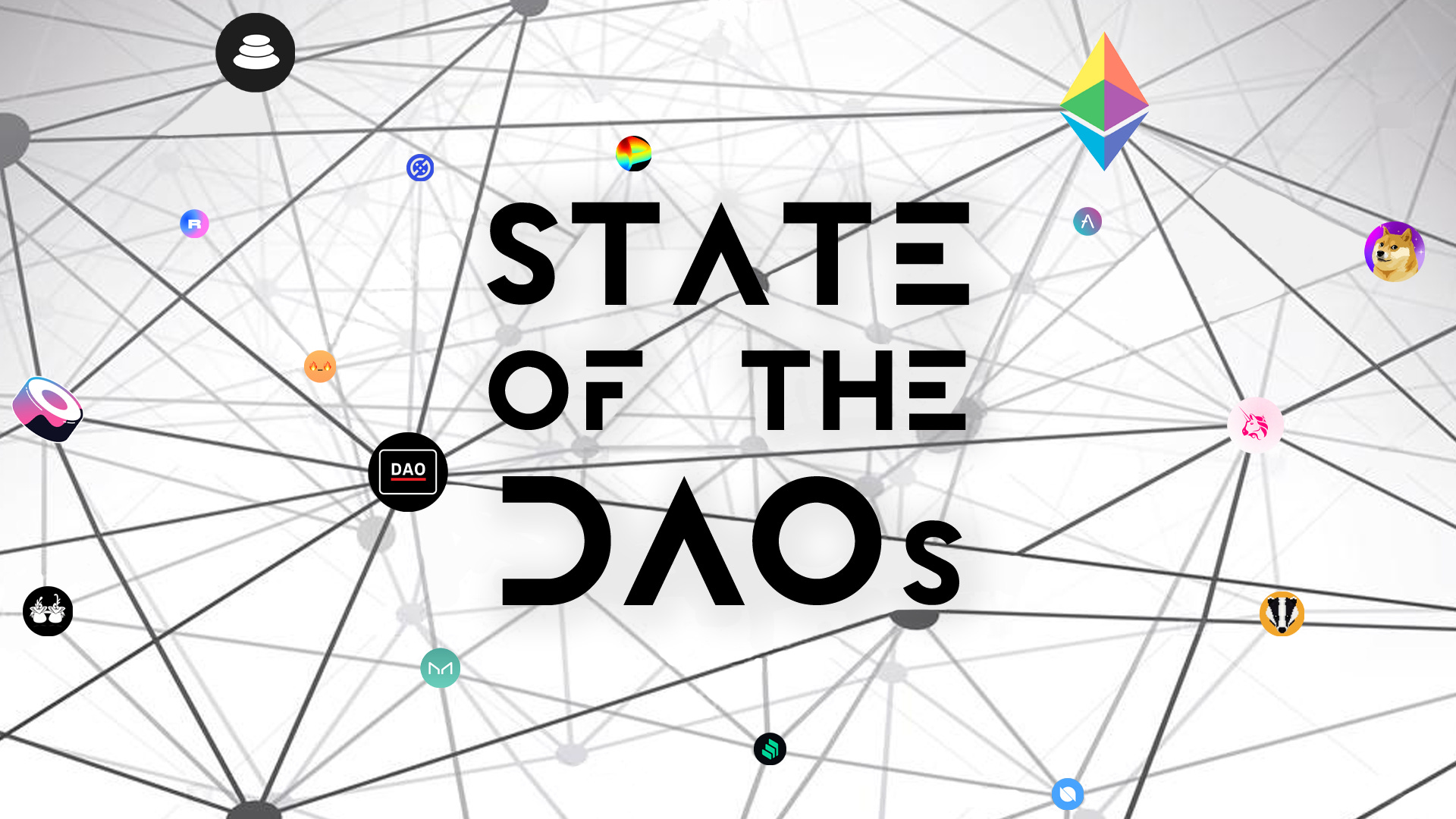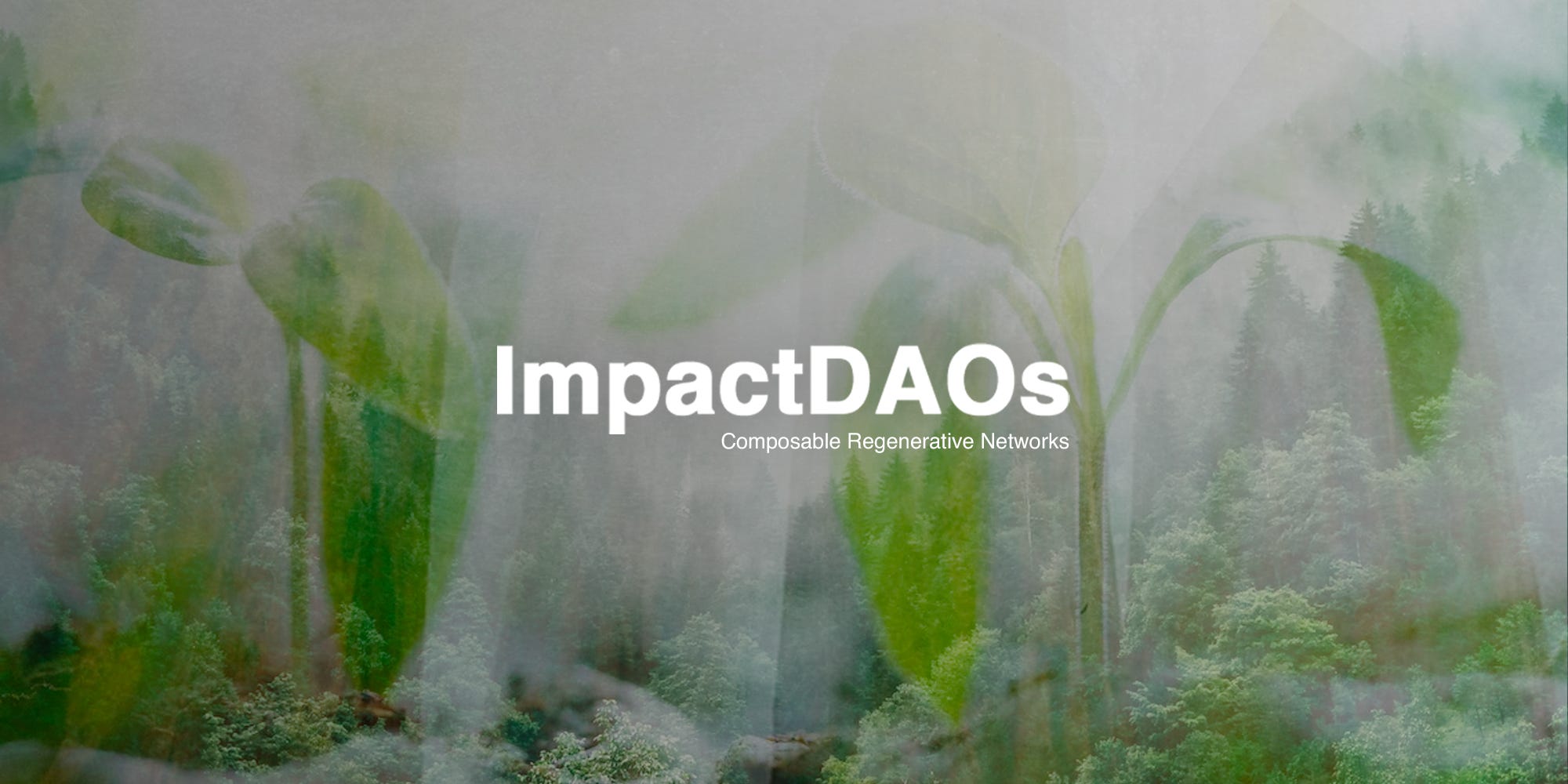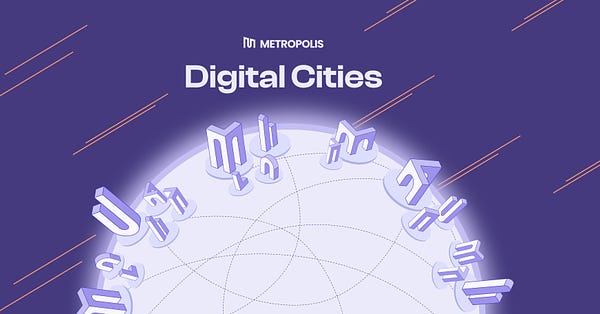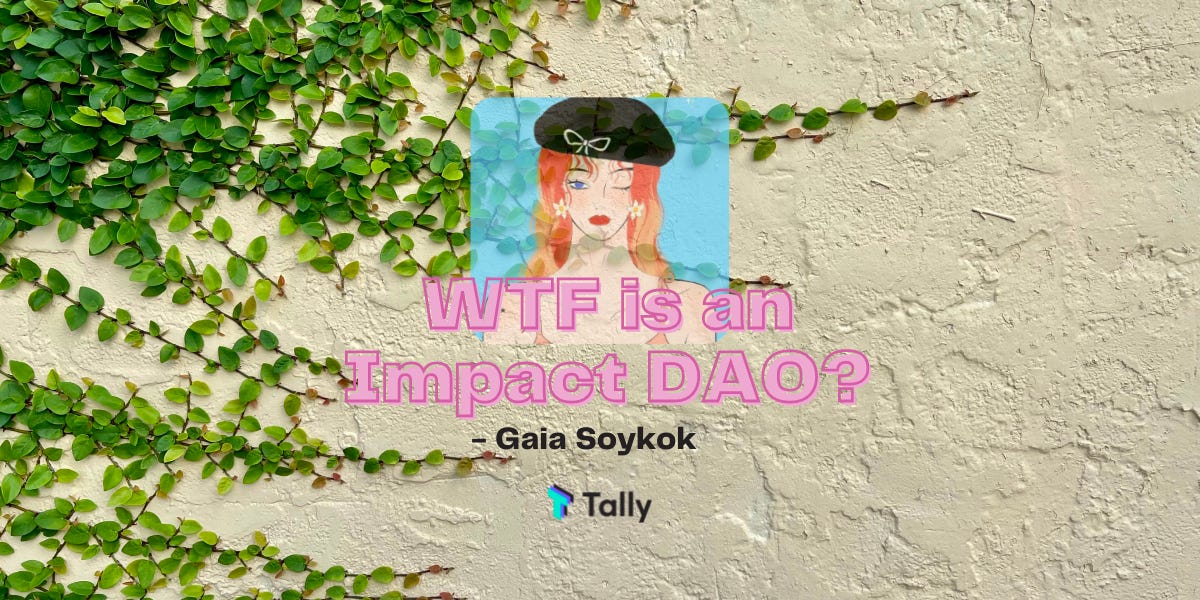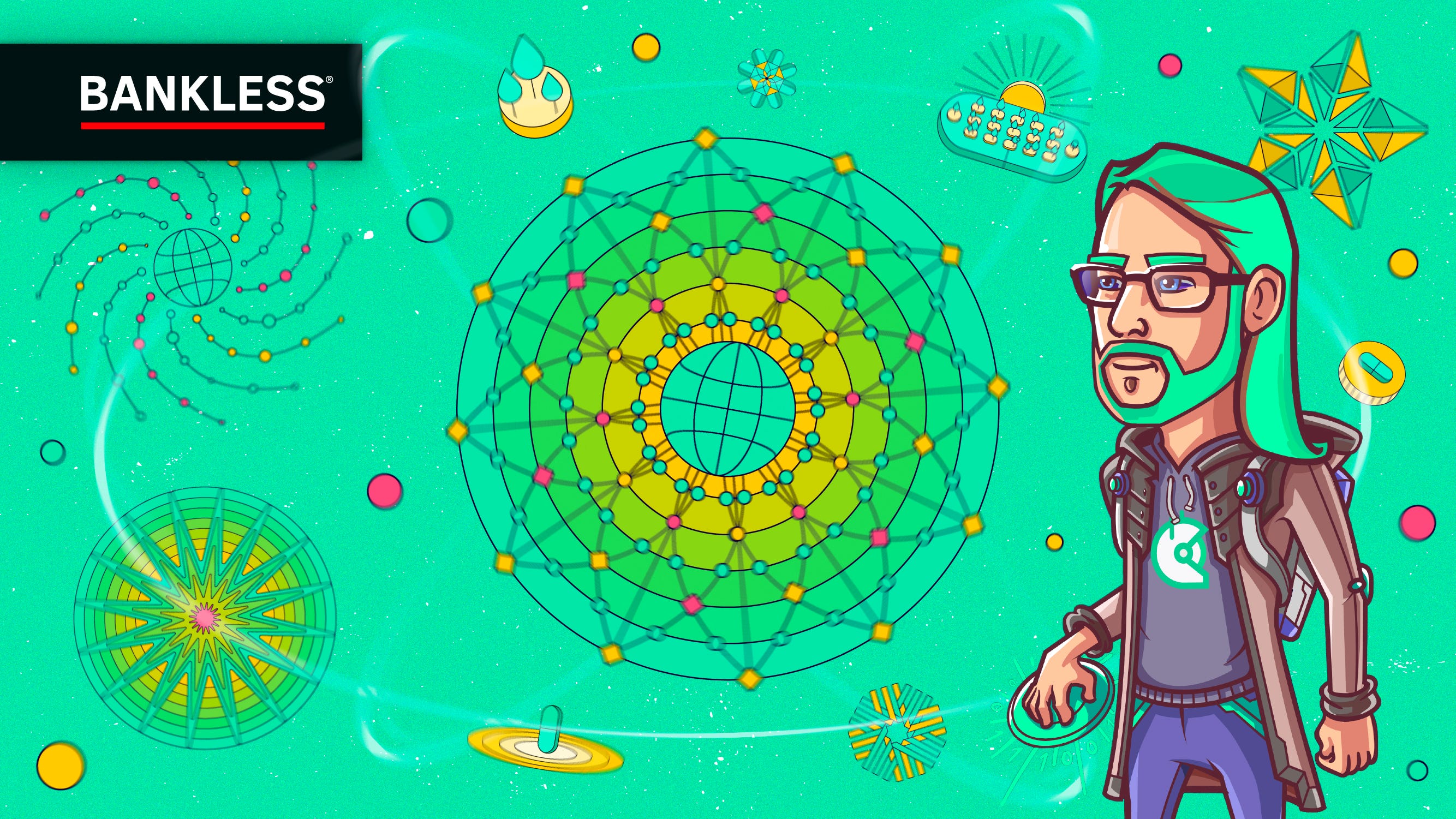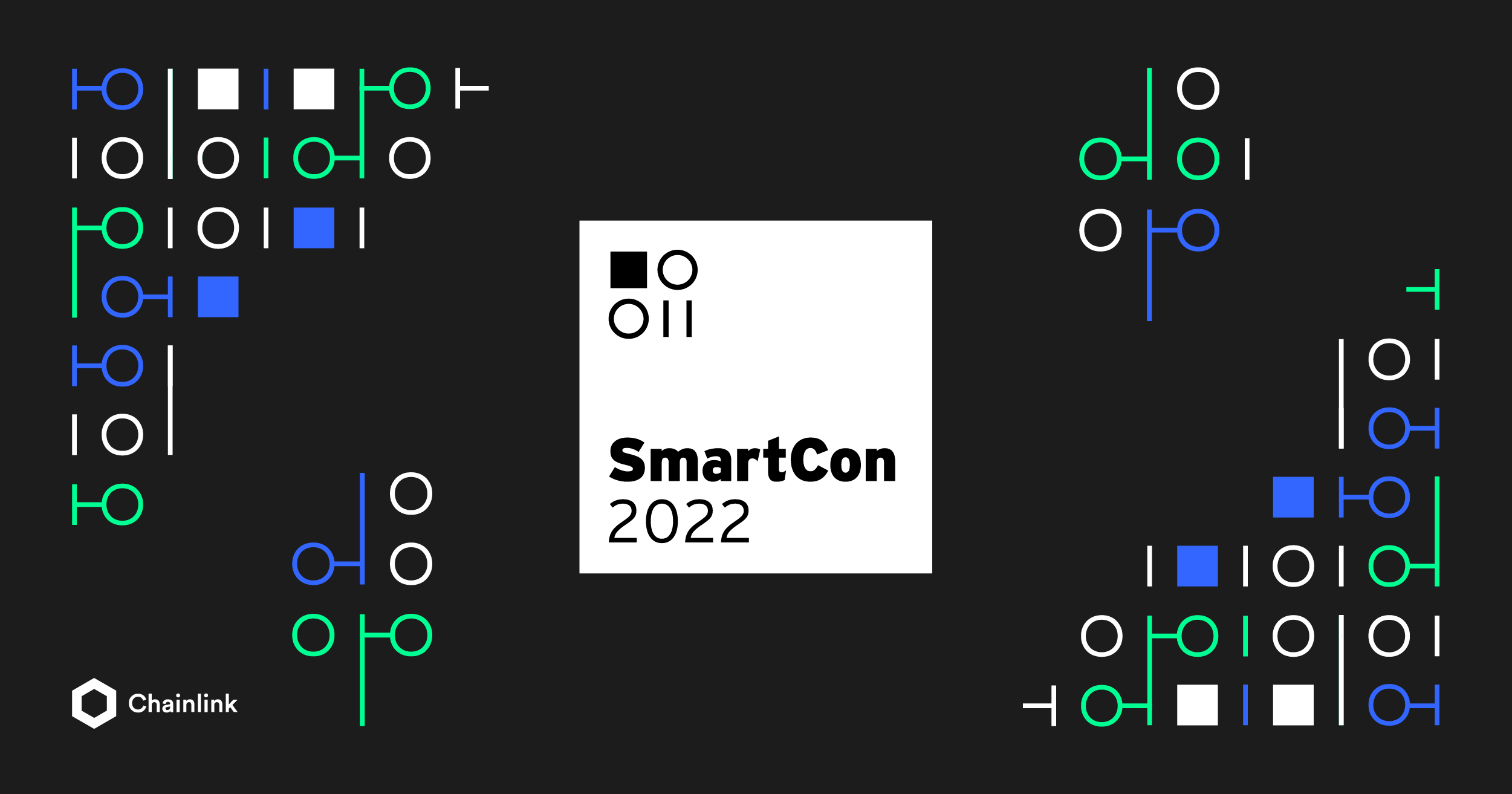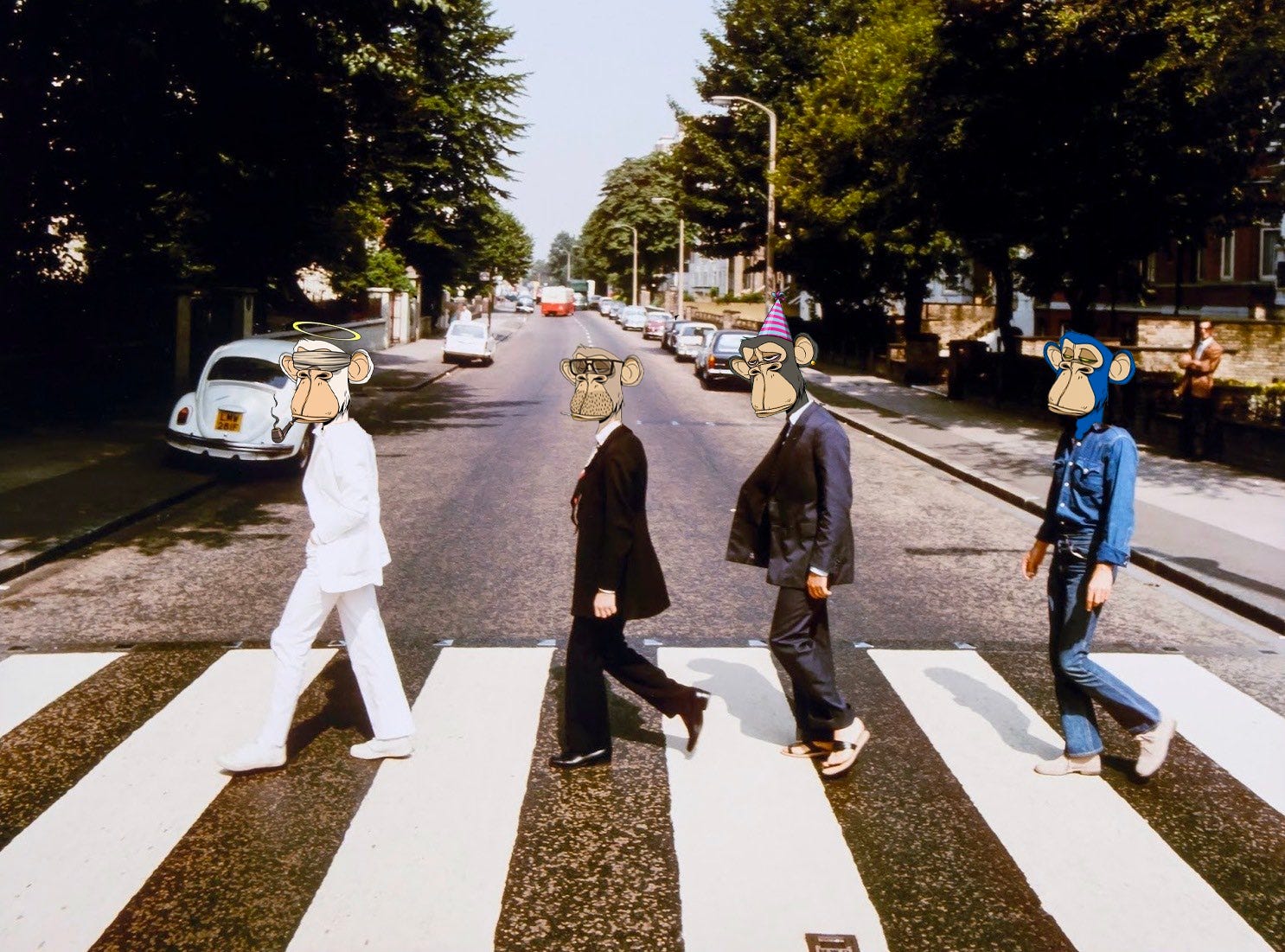ImpactDAOs Are Shaping the Future of Regenerative Organizations | State of the DAOs
ImpactDAOs Are Shaping the Future of Regenerative Organizations | State of the DAOsYou're reading State of the DAOs, the high-signal low-noise newsletter for understanding DAOs.gm gm and welcome to the State of the DAOs! This week we are turning our attention to ImpactDAOs and the opportunity they present to revolutionize social impact. By using regenerative cryptoeconomics, ImpactDAOs can take advantage of crypto values and incentives to motivate certain behaviors and actions in novel ways to create positive-sum, regenerative systems both on and off-chain. The result is that we are seeing new ways of organizing communities around causes and giving them the tools they need to act. By changing the way we work together to solve problems, we have the opportunity to solve some of the intractable challenges of our time, including climate change, financial inequality, refugee displacement, and more. First, Sardius gives us the 101 on ImpactDAOs, unpacking the unique characteristics they offer for shaping the future of regenerative organizations, as well as diving into some current use cases. Next, we feature an interview by Crypto Good with Christopher Chase of humanDAO, showing how use they are using a Pocket Assistant NFT (PANFT) to unlock the disruptive power of Web3 to solve some of the problems faced by humanity. Finally, we share the TL;DR on some of the best ImpactDAO ecosystem takes and thought pieces, making it easy for you to cut through the noise and learn everything you need to know to get started on your journey into working for the greater good. ImpactDAOs are changing the way we practice philanthropy and are well on their way to building the better future we know is possible. Find your cause, and go make a ruckus. This is the current state of the DAOs. Contributors: BanklessDAO Writers Guild (0xSardius, Seneca52, AustinFoss, Alvo von A, anointingthompson1, Jaux, Warrior, Lanksss, Winverse, Dippudo, hirokennelly, Jake and Stake, siddhearta) This is the official newsletter of BanklessDAO. To unsubscribe, edit your settings. ImpactDAOs Are Shaping the Future of Regenerative OrganizationsAuthor: 0xSardius
As decentralized autonomous organizations have spread across the Web3 ecosystem, new types of DAOs are emerging. A novel use case, termed “ImpactDAOs”, are defined as “any DAO that creates net positive externalities to the ecosystem around it” (Owocki 1). ImpactDAOs seek to use crypto-economics coupled with open, verifiable, and transparent impact with the goal of increasing resources, sustainability and regenerating an ecosystem over time. Resources aren’t strictly financial, as an ecosystem contains many types of resources, including intellectual, cultural, and material. Tokenization allows resources to take on a virtual life on the blockchain and utilized within an organization, along with allowing actual impact to be measured. ImpactDAOs focusing on carbon offsets, cultural capital, and scientific research are but a few examples of these new organizations. ImpactDAOs offer the potential to scale and extend the DAO model towards positive outcomes and social impact by incentivizing positive-sum, regenerative behavior both on and off-chain.  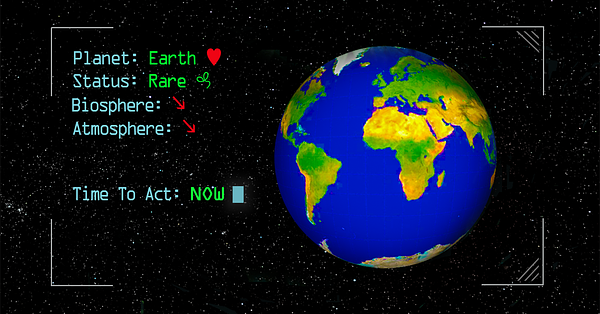 ImpactDAOs offer an opportunity to redefine incentives and scale human coordination around new ideas of resource abundance and systems design. While still in the early stages, they are exploring innovative combinations of cooperation, profit models, and non-profit mechanisms that haven’t been available to traditional organizations. These new combinations haven’t been available due to the coordination and remuneration limits of traditional, hierarchical companies. ImpactDAOs utilize blockchain technology to shift organizations away from rigid hierarchical organizations and towards flexible, scalable, and autonomous structures, optimized from the ground up. Unpacking ImpactDAOsUnpacking each word composing the term “decentralized autonomous organization” clarifies how ImpactDAOs extend the DAO model. DAOs are blockchain-enabled organizations built around fulfilling a mission chosen by a community, with members free to choose how to pursue that goal. DecentralizedDAOs are decentralized via blockchain technology, which allows the organization to exist without a third-party intermediary like a government entity or a bank. Anyone can spin up a DAO using no-code, permissionless tools like DAOhaus or Aragon, making organizational creation direct and customizable based on the needs of the community. DAOs operate in a decentralized manner, mimicking the technology they are built on. Members are empowered to make decisions without seeking top-down approval, similar to co-ops. DAO members also have a say in how capital is used. Members are thus directly empowered to take ownership of the direct impact resulting from their efforts. With no centralized player controlling the organization, members are free to develop their own rules on forming guilds and projects to pursue the primary mission of the DAO as they see fit. AutonomousDAOs utilize smart contracts for payments, voting and tooling that autonomously execute on the blockchain, akin to a programmable vending machine. What you put into a smart contract will give you the same result, every time. Called “immutability,” this feature is important as it prevents third parties from interfering in the execution of internal DAO votes, treasury management, and other operational procedures. Most DAOs are built as a hybrid of web2 and web3 technologies, with often very little of a DAOs internal mechanisms actually using smart contracts. DAO members are also autonomous in how they pursue the goal(s) of the DAO, an important aspect in how the DAO coordinates its efforts. Organizational CoordinationDAOs operate in practice like cooperatives, holocracies, or sociocracies. Organizational and governance structures are built from the ground up based on the desires of the community. Once a goal is decided, DAO members often form guilds or ad-hoc workstreams to coordinate around accomplishing member chosen objectives. Coordination can be challenging as there is no top-down direction, which means incentives and organizational design are especially important to DAOs. Members must be incentivized to collaborate with one another, or nothing will get done in the DAO. Unique Characteristics of ImpactDAOsIn addition to the core principles of how DAOs work, ImpactDAOs have several unique characteristics:
Case StudiesImpactDAOs are currently being used for verifiable, on-chain social impact and regenerative climate projects. ImpactDAOs can act as building blocks to enable other DAOs to build on top of them (e.g., Sybil-proof list of humans other ImpactDAOs can use for governance, proof of identity, and tokenized carbon offsets that can be used in other Regenerative Finance projects). Systems of incentives allow business and revenue models to be built around sustainable use cases. Tokenization of carbon offsets, scientific intellectual property (IP), art, and regenerative community actions all provide use cases for new models of coordination and cooperation to emerge. Creating regenerative ecosystems unlocks new Web3 building blocks, allowing emergent organizations to be built. Regen Network is an ImpactDAO building ecological assets for the ReFi economy. Exploring how to tie in the value of ecological health to economic value, Regen Network is creating an open source, community-driven carbon and ecological asset registry (Owocki, 34). Creating a community of scientists, researchers, and project developers, Regen Network has a system of tokenized carbon credits that create new markets around taking positive climate action. “Working alongside land stewards, biologists, data scientists, and others, Regen has developed over 40+ methodologies with 12 million hectares of ecological regeneration in the pipeline” (Owocki, 35). Implementing quadratic funding, the Regen Network plans to explore open-source funding towards ecological causes, researchers, and institutions, creating a positive feedback loop for new economies. The positive feedback loop is enabled as researchers and institutions are better able to incubate ecological-impact DAOs and provide more tokenized carbon credits to regenerative marketplaces.  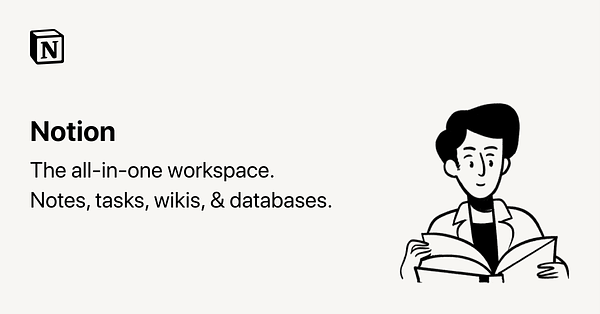 Molecule offers a research marketplace, IP-NFTs, and scalable frameworks for building biotech DAOs. The long term goal of Molecule is to decentralize the ownership, financing, and governance processes for drug development. Molecule enables patient, researcher, and investor communities to directly fund, govern, and own research related IP. Historically, private companies, universities, and governments have funded research grants and the development/market deployment of biotechnologies. The tokenization of early stage IP along with research projects allows the combined groups of patients, researchers, and investors to crowdfund needed biotech breakthroughs (Owocki, 108). Three Bio-DAOs currently reside within the Molecule ecosystem, VitaDAO, PsyDAO, and LabDAO, each funding longevity, psychedelic medicine, and wet/dry laboratory services.  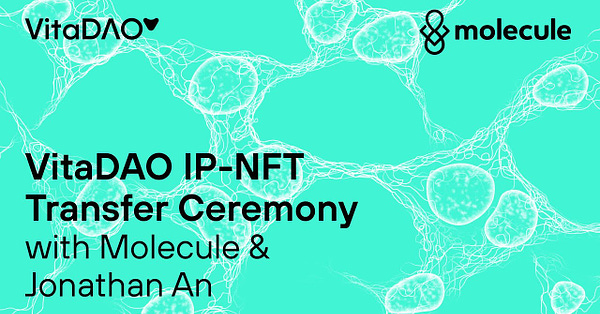 Metropolis (formerly Orca Protocol) is creating tools around “DAO governance that put people at the center of design” (Owocki, 76). Orca allows DAO contributors to coordinate within cross-DAO pods. Pods are small working groups organized around one’s expertise and ability to contribute. Pods allow mini-DAOs to operate within larger DAO frameworks, letting the needs of the ecosystem dictate how they can integrate and contribute. Orca aims to eventually enable a composable metagovernance framework that could act as a “connective tissue of multi-DAO governance councils (Owocki, 76). ChallengesWhile the future is bright for ImpactDAOs, there are some significant problems that need to be solved. Coordination of members towards real sustainable outcomes, collaboration of members without a traditional hierarchy, and actually verifying impact beyond lofty mission statements are just a few of the obstacles impactDAOs face. The DAO space itself is still emerging, and ImpactDAOs are being defined in real time. ImpactDAOs may be forced to make trade-offs between expedience in accomplishing their missions, and using Web3 technology in a novel way. The hope is that Web3 technology will not be used as simply an unnecessary add-on, and will instead facilitate the creation of some truly novel and paradigm changing organizations. ImpactDAOs: Evolving Public GoodsImpactDAOs extend the original DAO model by applying Web3 technology to make net-positive, sustainable, and regenerative impact on their attendant ecosystems. Projects are experimenting and rapidly innovating, creating new paradigms of regenerative ecosystems, redefining how public goods are created, and how resources are used and shared. ImpactDAOs utilize smart contracts, tokenization, and new governance models to “redefine incentives towards actions that regenerate ourselves and the earth” (Owocki, 8). ImpactDAOs offer a way for us to address complex, 21st century societal problems, and create long term, sustainable organizations that are a value add and incentivize regenerative behavior. Works Cited Owocki, Kevin. Impact DAOs. GitcoinDAO Public Goods Funding Workstream, 2022. 📖 Read Circular Design Guide ⛏️ Dig into Positive Sum Worlds: Remaking Public Goods 🎧 Listen Green Pill 14 - ImpactDAOs with Ale Borda Impact DAO StudyImpact DAOs Research + Book project is a decentralized, collaborative and open source project. The goal of the project is to publish a book on Impact DAOs that provides information, wisdom, and insights for new web3 entrants. The project covered ten DAOs in total, conducting three in-depth conversations per DAO. To learn more about the project visit the Gitcoin grant page. If you’d like to follow their work they’ll be regularly sharing their learnings and DAO builder interviews on Crypto Good. You can also follow the hashtag #impactdaostudy on Twitter. HumanDAO: From P2E to PA2EAuthor: Seneca52 It’s difficult to know where to begin with HumanDAO. To coin a phrase: it’s a lot. In this post we’ll be doing a high-level canter through the DAO’s overall purpose, and then zooming in on its next - highly ambitious - play. HumanDAO in a nutshellThe aim of HumanDAO in the broadest sense is to use the disruptive power of Web3 to solve the problems faced by humanity. In the words of its founder Christopher Chase, it’s like a charity on steroids. The organization has four pillars or goals that its activities are oriented towards. Briefly, these are:
OriginsA veteran of Web3, Christopher was drawn into the world of Play-to-Earn in 2021 via Axie Infinity. For those who don’t know, Axie Infinity is a crypto-based game that has provided an actual livelihood for many in countries such as the Philippines (where some shops even accept the in-game tokens as a form of payment!). In time, he found himself being approached for scholarships - a system in the game whereby a would-be player who lacks the means to purchase an NFT gets to borrow one from a player with NFTs to spare. This allows them to earn tokens by carrying out tasks within the game. “Hearing their stories,” he says, “how much a dollar a day could make a difference in their lives…I kept buying more Axies to get more scholars.” The Axie model uses the blockchain to create cross-border economic opportunities without the need for work visas or official trade agreements. Previously, you had to buy your way into crypto (e.g. exchange USD for BTC). Now you could earn your way in. Almost unintentionally, games such as Axie onboarded millions of “ambition-rich” individuals to the cryptoverse. It eventually struck Christoper that this model could be parlayed into generating economic value via real-world tasks. Hence the idea of the Pocket Assistant NFT (PANFT) was born.   The PANFT ConceptHere’s how the Pocket Assistant NFT system works. A PANFT holder receives 20 “energy bars” per week. Each energy bar represents the right to delegate a task (lasting 30 minutes max) to the PA talent pool. Currently, these tasks are restricted to activities such as data entry or basic research (i.e. best-suited to fungible resources). The PAs who complete these tasks are remunerated on a per-task basis. The planned floor price is $1, but pay will be supplemented with bonuses for higher-performing PAs. “It’s a cross between Tinder and Uber”, as Christopher puts it, referring to the fact that the platform’s web app allows PAs to view potential tasks and “swipe right” on those they wish to undertake. The system is therefore predicated on a fair exchange of value: a PANFT holder gets to save time and effort on routine tasks, while the PA can generate a regular income (e.g. $400 per month). In certain countries such as Argentina, an income of this size, paid in stablecoin, is preferable in many ways to a conventional job. The whole concept is exciting because it addresses one of the major objections to crypto - that it has no real use-cases - while also addressing a need in global society more profound than the conspicuous consumption NFTs have become known for. It also raises a ton of questions as to how such a model could be implemented successfully. Some of these questions have been answered, while others are still being worked on. In particular, the team is thinking through how to put in place the necessary revenue streams that will make the scheme’s payouts (to PAs, token stakers, and the DAO Treasury) sustainable. The immediate futureHumanDAO’s next major milestone is the first official mint of PANFTs. On the PA side, the team has been swamped with applications. The plan is to push go on the mint as soon as 400 reservations have been reached. While HumanDAO is in many ways at the start of its ambitious journey to unlock Web3’s full disruptive power, Christopher had many lessons to share with our project initiator Deepa. Listen to the full interview to find out:
DAOs at a Glance
🧵  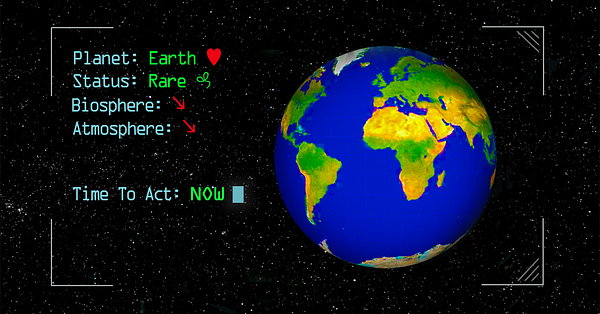 WTF is an Impact DAO?Author: Gaia Soykok Impact DAOs are essentially DAOs that are created to bring a larger impact and movement that usually gets missed. They aim to drive shared interests and needs of the commons. The objectives of Impact DAOs include:
In this article, they talk about how DAOs enable regens to scale their impact, focusing on the aspect of decentralization. Based on this, Impact DAOs are categorized into different buckets:
There can be a number of other categorizations of DAOs and impact DAOs as DAOs expand into newer avenues and gain more and more traction. What kind of impact and how impact DAOs really make an impact is something that we will see in the future as they grow. Cultivating Catalytic CommunitiesAuthor: Sara Campbell It is important to cultivate catalytic communities because to address systemic problems all parts of the system must work together. Catalytic communities bring together different actors to solve issues collectively, sharing information and resources freely, and coordinating and collaborating effectively.
Front-running The Regen OpportunityAuthor: Kevin Owocki The Regen Web3 movement is a new opportunity for early adopters to not only build a novel project and earn a financial return, but make it easier to get funding for projects that make greater humanitarian impact. Our current economic system has strong incentives for short-term quarterly results, making it difficult to fund projects with longer term, possibly even multi-generational, returns. Incentivizing long-term greed is something Regen Web3 mechanics can achieve in a way that sits in the middle of a scale modeling risk to reward. At the less risky end of the scale, with likewise lower reward, sit ideas like scaling the already existing GitCoin Grants system, and disrupting the NGO model. Ideas like GitCoin’s Aqueduct are being brought forward to give additional tooling and further amplification to a DAO’s ecosystem of projects. NGOs have existed for decades but have often struggled to properly deliver on their promises, whereas Web3 projects abilities to deliver are promising given their far greater transparency and lack of bureaucracy. Higher return and riskier ideas sit on the other side of the scale, including concepts like retroactive public goods funding and impact certificates. It’s far more difficult to determine value before you see results, giving credence to retroactive funding after results can be measured. An example of this already in action is how Optimism funds it’s ecosystem’s public goods from a share of the sequencer fees. Impact certificates have yet to be demonstrated, but would theoretically create a speculative market for these certificates issued to appropriate projects. Ideas like these show just show much room for experimentation there is in Regen Web3. Community Saves the WorldAuthor: Gideon Rosenblatt Community is the oldest form of human organization. Its earliest iterations revolved around physical location because this was the only way for people to interact in real-time. As technologies evolved, and specifically with the advent of the internet, the alignment of values became possible along other vectors. Common Interest Communities began to flourish. Behind the protective walls of the corporate structure these networks have generated significant revenues to fund innovation, but with time, the incentives of the shareholders have drifted away from contributors’ principles. The institutions at the core of modern society are proving ineffective at developing large-scale and workable solutions to today’s increasingly complex problems. Addressing modern issues will require cooperation among the centralized powers, but essential creativity and ability coordinate at scale is likely to come from the fringe. Decentralized, autonomous communities using blockchains can raise capital from their members via token sales. Providing ownership to the creators provides a certain level of financial autonomy while maintaining an alignment of interests. Taken together, these groups might provide the spark to galvanize society for common good. Five ways DAOs will revolutionize social impactAuthor: Crypto Altruism DAOs are a growing part of the crypto ecosystem and we are starting to see DAOs forming around creating social impact. Here are five ways DAOs will revolutionize social impact:
Ecosystem Takes
🧵  How Web 3 Changes PhilanthropyAuthor: Rhys Lindmark 🔑 Insights: Wealth distribution moving into the mid-21st century could look much different than it has since the second half of the 20th. Having moved from mostly inherited, to mostly fresh fortunes, we are now seeing cryptocurrencies raise individuals to the highest ranks of global wealth; following these trends, patterns of philanthropic activity could start looking much different. Web3 has already brought GitCoin Grants into the world, leveraging the power of quadratic voting, and the phenomenon know as impact DAOs is just getting started; both tools amplifying the contributions of smaller donors and incentivizing the funding of public goods. Here is the How People Get Rich Now timeline:
Crypto Can Fix the WorldAuthor: Kevin owocki 🔑 Insights: Currently, we are in the face of crucial world threats like climate change and wealth inequality which cannot be single-handedly solved. Our institutions have shown an inability to attract solutions for these problems, which have brought us to the point of sourcing for a revolutionary way to engage other monetary systems like crypto to create change in the world. We can solve problems centered around coordination using systems that stand against the norm of the present society, it’s not going to be easy, but is possible if we work together to slay moloch.
Introducing Incentives Into CommunitiesAuthor: Myco 🔑 Insights: Over the last 30 years we’ve seen several online communities attempt to incorporate incentives. The resulting successes and failures have resulted in sequential improvements with each new experiment. When we look at the history of inducements in online communities, we see a natural progression first from no incentives, then to reputational motivation, and finally to monetary enticements. What if there was another step?
Solarpunk! Reimagining Public Goods in the Age of EthereumAuthor: Sara Campbell, Scott Moore 🔑 Insights: The Solarpunk movement is an environmental movement centered on renewable energy using long-term technologies. It has now expanded into an important component of a worldwide discourse about creating an optimistic future together. By using blockchain and Web3 tools we can work together to create new institutions in a broken world. Some key insights include:
Building Regenerative Systems on Crypto RailsAuthor: siddhearta 🔑 Insights: Incentives help us make decisions and they are seen as drivers and motives behind what we do. Crypto has the unique opportunity to offer a shortcut to the adoption of regenerative systems through its wide array of unique incentives. These incentives can either be extrinsic or intrinsic.
By designing the right systems with the right incentives, we have the potential to create systems and networks that are regenerative and sustainable. DAO SpotlightLexDAO is an unincorporated nonprofit association of legal engineering professionals, united to innovate and bring the traditional legal settlement layer to code, as well as coded agreements to the masses. The club believes that everyone deserves access to justice provided in a quick and efficient manner and that if legal services were easier to use, verify, and enforce, we could live in a fairer world. By training LexDAO-certified legal engineers and building LexDAO-certified blockchain applications, the club aims to grow and evangelize first-class legal methods and blockchain protocols that secure rules and promises with code rather than trust. To get full access to the DAO and enjoy some amazing features, you need to become a member. Membership is broken down using a tier system. Tier 0 members have limited access, but Tier 1 members, who pay a yearly membership fee, have full access. Tier 1 members enjoy access to the library of educational materials and CLEs that are being built. They also get to earn certifications such as the LEETH Legal Engineering Certification. Projects within the DAO are also broken down using a tier system - Tier 1, Tier 2, and Tier 3. While Tier 1 deals with small scale projects or projects still in their incubation stage, Tier 2 deals with bigger initiatives that the DAO is working on. Twitter spaces, grants, and trademark registries are projects that fall under Tier 1. Some other projects hatching in Tier 2 include real world assets, lex education, and legal structures. In Tier 3, these projects evolve into subDAOs. They still pay back to LexDAO, but break out, creating their own token in the process. Curia DAO is one of such projects that broke out to form a subDAO. It was initially a semi-official working group under LexDAO, LexODR (on-chain dispute resolution), until some members took the group to subDAO status and named it Curia. Curia is an on-chain dispute resolution platform with curated panels. Another project that broke out, attaining subDAO status, is the Kali DAO. Kali is a protocol for on-chain companies and funds. Their software, which helps to create and protect DAOs, was incubated by LexDAO. Legal forms are also maintained as open source goods by LexDAO legal engineers. With incorporation and full-service legal engineering support being integrated into an MVP UI, Kali users will have their organization's pain points solved quickly and cheaply. If joining a group of legal professionals working on blockchain technology that impacts legal processes and services excites you, you will definitely love to be a part of this group. Get Plugged InEvent HighlightsSmartCon 2022 — Hosted by ChainlinkThere will be two full days of keynotes, panels, developer workshops, and AMAs featuring leading projects and speakers from across the blockchain ecosystem. You’ll get insight into the latest Web3 developments directly from researchers, developers, and founders at the forefront of smart contract innovation. This event will be held live in New York City, and virtually from September 28-29. 🧳 Job OpportunitiesGet a job in crypto! Do you like solving hard problems, care about building more efficient markets for everybody, and want to work at the frontier of decentralized finance? Rook is looking for full time contributors, with salaries ranging from $169,000-$722,000. There are positions ranging from engineering, recruiting, product marketing, copywriting, and design. Sound interesting? Sign up for our referral program and go full-time DAO.
🙏 Thanks to our SponsorThe RugThe Rug is Web3’s mostly credible news source. We take money, seriously. In practice, The Rug places a satirical lens on crypto-culture. Think "The Onion" for Web3. Our publication includes recaps of the best jokes, funniest articles, behind the scenes podcasts, and throwback newspaper-style NFTs, all of which we produce on a regular basis. 👉 Subscribe to our newsletter, and read all about it! If you liked this post from BanklessDAO, why not share it? |
Older messages
Botto, Reddit, Muse, and The Rug | Decentralized Arts
Tuesday, September 6, 2022
Dear Bankless Nation, This week we talk about Botto, Reddit, Muse, and The Rug, "Web3's mostly credible news source." Newsletters are the ambassadors of the communities they represent.
WildFireDAO Proposal Ignites a Conversation | BanklessDAO Weekly Rollup
Saturday, September 3, 2022
Catch Up With What Happened This Week in BanklessDAO
The Merge (Part I) | DeFi Download
Thursday, September 1, 2022
Your Trusted Source for 101s, Project Announcements, and Tokenomics Tutorials.
Tokenization | Decentralized Law
Thursday, September 1, 2022
A Journal Covering the Crypto-Legal Space
VaynerSports Steps Up Sports NFT Utility | Decentralized Arts
Tuesday, August 30, 2022
BanklessDAO Weekly NFT and Cryptoart Newsletter
You Might Also Like
86% of Bitcoin’s sell-off driven by short-term retail traders
Sunday, January 12, 2025
High exchange inflows from day traders indicate short-term trading activity as the key driver behind Bitcoin's price volatility. ͏ ͏ ͏ ͏ ͏ ͏ ͏ ͏ ͏ ͏ ͏ ͏ ͏ ͏ ͏ ͏ ͏ ͏ ͏ ͏ ͏ ͏ ͏ ͏ ͏ ͏ ͏ ͏ ͏ ͏ ͏ ͏ ͏ ͏
Asia's weekly TOP10 crypto news (Jan 6 to Jan 12)
Sunday, January 12, 2025
The Russian Ministry of Finance has announced plans to liquidate Bitcoin assets seized in connection with the Infraud hacking case. ͏ ͏ ͏ ͏ ͏ ͏ ͏ ͏ ͏ ͏ ͏ ͏ ͏ ͏ ͏ ͏ ͏ ͏ ͏ ͏ ͏ ͏ ͏ ͏ ͏ ͏ ͏ ͏ ͏ ͏ ͏ ͏ ͏ ͏ ͏
FDIC interim chair calls crypto debanking ‘unacceptable’ amid concerns over Operation Chokepoint 2.0
Saturday, January 11, 2025
Although not directly from the FDIC, Hill's remarks brought new clarity to what critics have called "Operation Chokepoint 2.0." ͏ ͏ ͏ ͏ ͏ ͏ ͏ ͏ ͏ ͏ ͏ ͏ ͏ ͏ ͏ ͏ ͏ ͏ ͏ ͏ ͏ ͏ ͏ ͏ ͏ ͏ ͏ ͏ ͏ ͏
Weekly Project Updates: Berachain Deposits Surpass $1.1 Billion, Movement Secures $100 Million in Series B Funding…
Saturday, January 11, 2025
On Friday, the proportion of the USD0/USD0++ Pool on Curve, with a Total Value Locked (TVL) of $245 million, tilted severely. ͏ ͏ ͏ ͏ ͏ ͏ ͏ ͏ ͏ ͏ ͏ ͏ ͏ ͏ ͏ ͏ ͏ ͏ ͏ ͏ ͏ ͏ ͏ ͏ ͏ ͏ ͏ ͏ ͏ ͏ ͏ ͏ ͏ ͏ ͏ ͏ ͏ ͏
Ethereum and Solana staking no longer classified as collective investment schemes in the UK
Friday, January 10, 2025
The UK Treasury's amendments are part of the government's recent plans to foster crypto innovation. ͏ ͏ ͏ ͏ ͏ ͏ ͏ ͏ ͏ ͏ ͏ ͏ ͏ ͏ ͏ ͏ ͏ ͏ ͏ ͏ ͏ ͏ ͏ ͏ ͏ ͏ ͏ ͏ ͏ ͏ ͏ ͏ ͏ ͏ ͏ ͏ ͏ ͏ ͏ ͏ ͏ ͏ ͏ ͏ ͏ ͏ ͏
WuBlockchain Weekly: U.S. Government Authorized to Sell $6.5 Billion Worth of Bitcoin, Pro-Crypto Pierre Poilievre…
Friday, January 10, 2025
The US government has received approval to liquidate 69000 Bitcoins (valued at $6.5 billion) seized from the “Silk Road” darknet market, a government official confirmed to DB News on Thursday. ͏ ͏ ͏ ͏
US Government can now sell $6.5 billion Silk Road Bitcoin before Trump enters office
Thursday, January 9, 2025
Federal court ruling accelerates sale of Silk Road Bitcoin as market watches closely. ͏ ͏ ͏ ͏ ͏ ͏ ͏ ͏ ͏ ͏ ͏ ͏ ͏ ͏ ͏ ͏ ͏ ͏ ͏ ͏ ͏ ͏ ͏ ͏ ͏ ͏ ͏ ͏ ͏ ͏ ͏ ͏ ͏ ͏ ͏ ͏ ͏ ͏ ͏ ͏ ͏ ͏ ͏ ͏ ͏ ͏ ͏ ͏ ͏ ͏ ͏ ͏ ͏ ͏ ͏ ͏ ͏ ͏
Reminder: TGEs Look To Heat Up Crypto In 2025
Thursday, January 9, 2025
Monday Jan 6, 2025 Sign Up Your Weekly Update On All Things Crypto TL;DR TGEs To Heat Up Crypto In 2025 Solana Remains Skeptical About AI Agents BTC Looks To Regain Momentum, DOGE & SUI Surge UK
Mining News in December: Ethiopia's Rise, Huaqiang North Mining Machine Prices Rise, Oilfield Giant Invests in Bit…
Thursday, January 9, 2025
Title sponsored by Bitdeer, a NASDAQ-listed mining company. ͏ ͏ ͏ ͏ ͏ ͏ ͏ ͏ ͏ ͏ ͏ ͏ ͏ ͏ ͏ ͏ ͏ ͏ ͏ ͏ ͏ ͏ ͏ ͏ ͏ ͏ ͏ ͏ ͏ ͏ ͏ ͏ ͏ ͏ ͏ ͏ ͏ ͏ ͏ ͏ ͏ ͏ ͏ ͏ ͏ ͏ ͏ ͏ ͏ ͏ ͏ ͏ ͏ ͏ ͏ ͏ ͏ ͏ ͏ ͏ ͏ ͏ ͏ ͏ ͏ ͏ ͏ ͏ ͏ ͏ ͏
Let's Make Money from Farming
Thursday, January 9, 2025
CRYPTODAY 140 ͏ ͏ ͏ ͏ ͏ ͏ ͏ ͏ ͏ ͏ ͏ ͏ ͏ ͏ ͏ ͏ ͏ ͏ ͏ ͏ ͏ ͏ ͏ ͏ ͏ ͏ ͏ ͏ ͏ ͏ ͏ ͏ ͏ ͏ ͏ ͏ ͏ ͏ ͏ ͏ ͏ ͏ ͏ ͏ ͏ ͏ ͏ ͏ ͏ ͏ ͏ ͏ ͏ ͏ ͏ ͏ ͏ ͏ ͏ ͏ ͏ ͏ ͏ ͏ ͏ ͏ ͏ ͏ ͏ ͏ ͏ ͏ ͏ ͏ ͏ ͏ ͏ ͏ ͏ ͏ ͏ ͏ ͏ ͏ ͏ ͏ ͏ ͏ ͏ ͏ ͏ ͏ ͏ ͏
